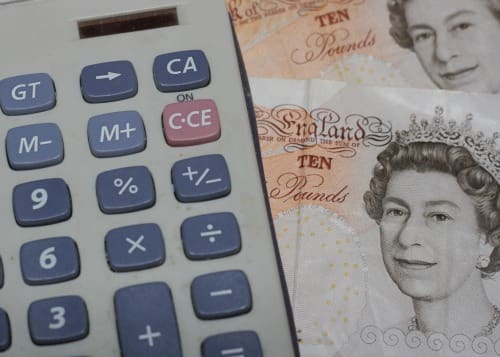Keeping track of your finances when you are supporting a busy family can be tough, and it is easy to overspend or lose track of your money if you don’t have a system in place to stay on top of your income and outgoings. If you can develop a way to plan your spending and find efficiencies in how you use your money you’ll be able to save and stay on top of your finances much more easily.
Audit yourself
Before you create a budget you should go through your normal spending habits to get a good understanding of how you spend your money at the moment. This will help you to identify your essential costs (such as rent, mortgage, bills etc.) and also potentially some expenses you could easily cut out or make more efficient. For example, have you got any old direct debits you’ve forgotten to cancel? Are you making the most of offers and vouchers when you do your food shopping?
Understanding your income and outgoings is the first step in getting on top of your money and finding a more efficient way to use it.
Create a budget
Once you know exactly how much money you have coming in and going out, you can start to create a budget. The first stage is to discount all your absolutely essential costs as described above. Once you know how much money you have left to play with you can prioritise what you want to be spending it on. If saving for the future is important to you then it’s a good idea to start putting a little money aside each month. Even if there isn’t a specific thing you are saving for it’s important to budget for unexpected costs so it’s a good idea to always be saving a little, or at least not living entirely month to month.
You may find it helpful to create your budget in a spreadsheet to help you stay disciplined and keep track of your spending each month. It’s also worth creating both monthly and longer term budgets. This is especially helpful if you are saving for something specific like a holiday, car or big home improvement project. Identify exactly what you can and can’t spend money on and set yourself goals to ensure that you stick to the plan.
Look for money saving opportunities
You should always be on the lookout for chances to save money or opportunities to use your money more efficiently and get the most from it. Take advantage of deals when you are food shopping, use websites like Money Saving Expert or Bespoke Offers to find great value offers on essentials and one off purchases like sight tests, and avoid impulse purchases – always sleep on a spending decision so you know for sure that you really need or want to spend that money.
Make sure you also choose a current account that is easy to manage, so you can move money around easily and check your balance throughout the month to ensure you are spending wisely. For example, Barclays offer current accounts which allow you to use mobile banking and even receive text alerts that help you control your spending.
When you are on top of your finances you are better able to relax about money worries, you make better decisions about how to spend your money and it’ll be easier to afford unavoidable expenses or save for holidays and other good things.

